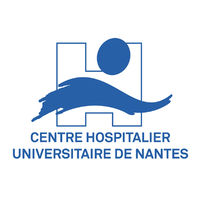Request Demo
Last update 08 May 2025
Complication of extracorporeal circulation
Last update 08 May 2025
Basic Info
Synonyms Complication of extracorporeal circulation, Complication of extracorporeal circulation (disorder), complications; extracorporeal circulation + [1] |
Introduction- |
Related
35
Clinical Trials associated with Complication of extracorporeal circulationNCT06754709
Evaluation of the Levels of O-GlcNAcylation of Cardiac and Blood Proteins in Paediatric Cardiac Surgery and Identification of Therapeutic Targets
Cardiac surgery requires the use of extracorporeal circulation (ECC). Age-related differences in inflammatory response, the greater susceptibility of immature organ systems to injury and the larger ratio of extracorporeal circuitry to patient size make younger and smaller patients more vulnerable to organ injury. The main problem associated with ECC in neonates and infants is the duration of ECC due to heavier surgeries leading to a prolonged inflammatory state resulting in capillary leak syndrome, low cardiac output syndrome and organ dysfunction, resulting in higher morbidity and mortality. The means of limiting this inflammatory response remain limited. Future studies should aim to address new post-ECC prophylactic targets to improve myocardial and endothelial function. Cardiac metabolism is an important area of research because it plays a central role in maintaining cardiac function under stress. The study of O-GlcNAcylation could therefore be an interesting therapeutic target, given the beneficial role of its stimulation in acute stress situations, as demonstrated in sepsis.
Start Date13 Feb 2025 |
Sponsor / Collaborator |
NCT06179771
HA380 Column Use in Critically Ill Patients Receiving Extracorporeal Support for Acute Critical Illness; a Prospective, Randomised, Interventional, Feasibility, Pilot Study (HACEC)
Patients who are very ill either due to a severe infection, major organ injury, trauma or a major operation may require significant support with devices such as a dialysis machine for the kidneys or Extracorporeal Membrane Oxygenation (ECMO) for the heart and lungs. This is often due to a reaction of the body to the insult which is termed inflammation. The investigators would like to assess if the use of a device that can remove the agents driving this reaction can lead to a quicker recovery form the illness. The device is a blood filter called HA380 and it would be connected to either the dialysis machine or the ECMO circuit. The investigators want to assess the feasibility of conducting a study with the HA380 column. We will also evaluate if the use of the HA380 column has an effect on the time spent on dialysis or ECMO, time spent on the breathing machine, time spent requiring drugs to support blood pressure and time spent in the intensive care unit.
Start Date12 Nov 2024 |
Sponsor / Collaborator |
NCT06786416
A Monitoring System Based on the Multifactorial Dynamic Perfusion Index to Predict and Prevent the Onset of Postoperative Acute Kidney Injury After Cardiac Surgery, Based on a Dynamic Collection of Hemodynamic and Clinical Parameters During Cardiopulmonary Bypass
This project is based on a predictive alghorithm (Multifactorial Dynamic Perfusion Index-MDPI) already published and covered by a patent. The MDPI is based on a dynamic collection of 7 different variables during cardiopulmonary bypass (CPB) and provides a probability index for postoperative acute kidney injury. The study design is a multicenter observational prospective trial developed through 3 work packages, addressing (1) external validation of the MDPI in a series of 800 adult cardiac surgery patients collected in 2 Institutions (2) development of a novel MDPI to be applied in infants < 20 kg undergoing cardiac surgery (200 patients) and (3) verification of of other possible outcomes that may be predicted by the MDPI. Since many of the predictive variables are modifiable by the perfusionist/anesthesiologist during CPB, it is a tool that allows therapeutic manouvres. Ultimately, the MDPI will be incorporated in a dedicated monitor to provide an on-line "flight control" during CPB. Work package 1 will be performed at Units 1 and 2; the parameters composing the MDPI will be collected using the existing CPB monitors that routinely measure the hematocrit, the oxygen delivery, the time of exposure to a pre-defined critical oxygen delivery, the mean arterial pressure, and the CPB duration. Blood lactates and transfusions will be manually inputed. The MDPI will be calculated off-line and tested for association and predictivity (discrimination and calibration) with respect to postoperative AKI defined according to the K-DIGO classification. Workpackage 2 is dedicated to infants, with the purpose of developing an MDPI dedicated to low-weight infants (I-MDPI). This will be develop in Unit 1 that performs congenital heart surgery. The same variables of the MDPI will be collected, plus additional variables specific for infants (blood to prime the oxygenator, plasma for the same purpose; venous oxygen saturation, and others). The variables being independently associated with AKI will enter a logistic regression equation that will be the basis for the I-MDPI. Workpackage 3 considers that AKI is associated with a prolonged mechanical ventilation time, prolonged stay in the intensive care unit and in the hospital; and mortality. Therefore, the MDPI may be predictive of other postoperative complications, apart from AKI, and even of mortality. Some of the factors included in the MDPI may directly (low hematocrit) or indirectly (prolonged CPB duration, excessive hemodilution, low mean arterial pressure) affect the hemostatic system and/or trigger packed red cells transfusions. Additionally, CPB itself is a determinant of a coagulophatic state with associated postoperative bleeding which, in turns, increases the mortality. The specific aim 3 is to confirm the hypothesis that the MDPI may be predictive of one or more of this non-AKI postoperative complications and of 30-days mortality. In the same series of work package and aim 1, these complications will be collected and the MDPI tested for predictive ability of each one of these complications and 30-days mortality. At present, the MDPI can only be calculated off-line, and this greatly limits its applicability. The last step of the aim 3 is based on the involvement of software experts and partnership with companies interested in including the MDPI into their existing monitors; as such, the MDPI patent would be given under licence of the existing patent owned by the IRCCS Policlinico San Donato.
Start Date18 Sep 2024 |
Sponsor / Collaborator |
100 Clinical Results associated with Complication of extracorporeal circulation
Login to view more data
100 Translational Medicine associated with Complication of extracorporeal circulation
Login to view more data
0 Patents (Medical) associated with Complication of extracorporeal circulation
Login to view more data
4
Literatures (Medical) associated with Complication of extracorporeal circulation01 Jun 2006·Sheng wu yi xue gong cheng xue za zhi = Journal of biomedical engineering = Shengwu yixue gongchengxue zazhi
[Simulation research of extracorporeal circulation reflux control method].
Article
Author: Wang, Wei ; Jiang, Zuming ; Ding, Wenxiang ; Xu, Zhiwei ; Yu, Xiaoqing
25 Jan 1992·Presse medicale (Paris, France : 1983)Q4 · MEDICINE
[Use of a synthetic prostacyclin in extracorporeal circulation].
Q4 · MEDICINE
Article
Author: Dubois, D ; Fabiani, J N ; Terrier-Mouilleron, E ; Tournay, D ; Carpentier, A ; Farge, D ; Massonnet-Castel, S
01 Jan 1979·Khirurgiia
[Perfusion balance in extracorporeal circulation (ECC) disorder: the causes and management of the disorder].
Article
Author: Boianov, Z
Analysis
Perform a panoramic analysis of this field.
login
or

AI Agents Built for Biopharma Breakthroughs
Accelerate discovery. Empower decisions. Transform outcomes.
Get started for free today!
Accelerate Strategic R&D decision making with Synapse, PatSnap’s AI-powered Connected Innovation Intelligence Platform Built for Life Sciences Professionals.
Start your data trial now!
Synapse data is also accessible to external entities via APIs or data packages. Empower better decisions with the latest in pharmaceutical intelligence.
Bio
Bio Sequences Search & Analysis
Sign up for free
Chemical
Chemical Structures Search & Analysis
Sign up for free

